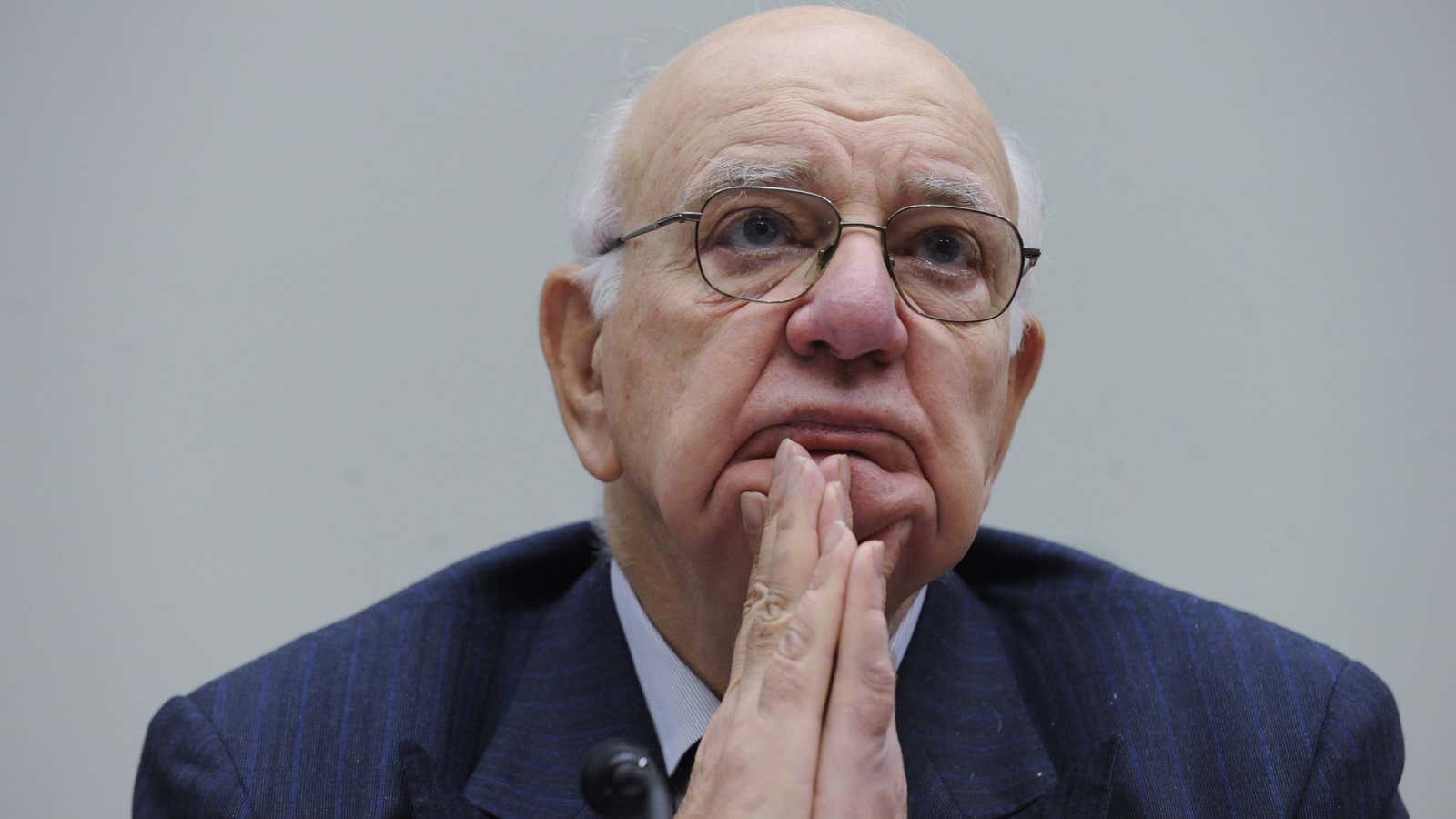Here’s the secret about that secret Goldman Sachs team that made headlines this week: It’s not really doing anything wrong.
Bloomberg News reported that the investment bank is sidestepping the so-called Volcker rule by having a group within the firm, with $1 billion of assets under management, make risky “hedge fund” type investments.
Take this story with a large grain of salt. The Volcker Rule, enacted by Congress, prohibits proprietary trading but also permits market-making and long-term investment. Market-making is important to the economy because it supplies liquidity for investments. Without liquidity issuers of debt and equity would have to pay more for their funds because investors with less liquid investments would face more risk. Banks are also allowed to invest their excess funds in longer-term investments. As for any investor, it is prudent to diversify a portfolio with investments of different types, with some investments more risky than others.
The problem comes in deciding what is proprietary trading rather than market-making or investing. When it comes to market-making, regulators want to make sure the positions are temporary, that inventory is being accumulated to dispose of in relatively short order. On the other hand, when it comes to investment, the same regulators want to make sure the position is for the longer term, not a position that is designed to profit by short-term price movements. Of course, in both these permitted cases, the firm has its capital at risk, as it does in the case of proprietary trading. So if you can only have relatively short positions for market making and relatively long positions for investment, the real impact of the Volcker rule is to prohibit intermediate investment, a very questionable policy. And even some intermediate risk might be permitted if the financial institution can rebut the presumption, based on all the facts and circumstances, that its position was taken essentially to make a short-term profit. And intermediate risk would also be allowed if incurred in connection with a third proprietary trading exemption for hedging, the issue in the JP Morgan whale case.
But there is no Volcker Rule at the moment. Its implementation through regulation is in proposal stage and the proposal is being thoroughly revised in response to a raft of commentary—so there is nothing Goldman violated. Secondly, the proposed rule allows long-term investments, those over 60 days, risky or not, because such longer term investments are not regarded as being in a “trading account.” Third, $1 billion sounds like a lot of money but it is a drop in the bucket of Goldman’s $950 billion in assets at the end of third quarter 2012. Goldman has stated that the investments in question were long-term, so Goldman was just complying with the proposed rule, and really not risking that much of its money.
Much more troublesome than the story, however, is the rule itself. Once in effect, its only net impact might be to ban positions of intermediate term in some but not all cases.




